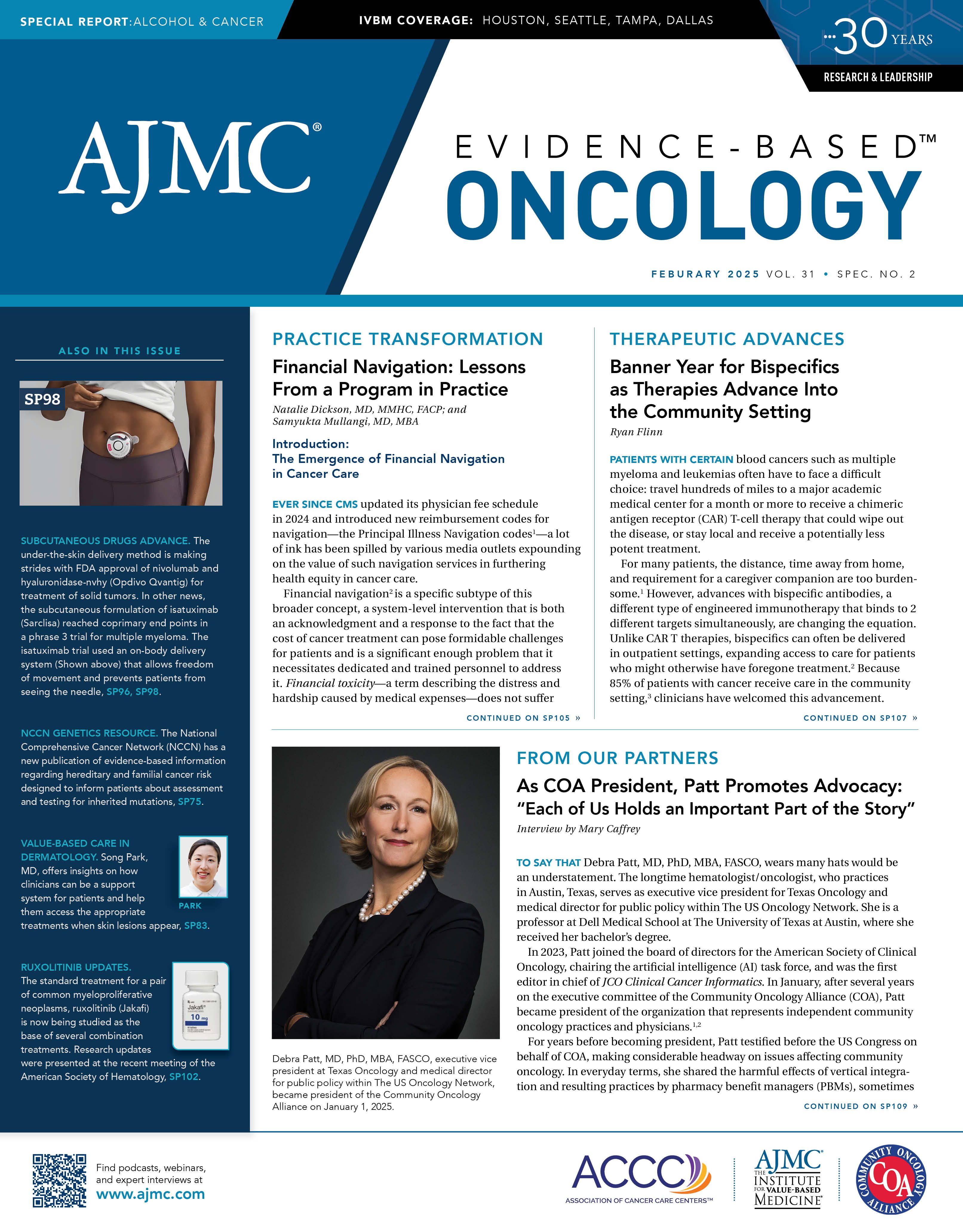- Center on Health Equity & Access
- Clinical
- Health Care Cost
- Health Care Delivery
- Insurance
- Policy
- Technology
- Value-Based Care
“This Is Important Information to Get Out”
Patt

Debra Patt, MD, PhD, MBA, is a medical oncologist/hematologist and breast cancer specialist who practices in Austin, Texas, for Texas Oncology. She is the current president of the Community Oncology Alliance, a member of the board of directors for the American Society of Clinical Oncology, and medical director for public policy for The US Oncology Network. As part of a wide-ranging interview, Evidence-Based Oncology (EBO) asked Patt about the US surgeon general’s January 3, 2025, advisory on alcohol and cancer risk.
EBO: What were your thoughts on the surgeon general’s advisory?
Patt: I saw the surgeon general’s report on alcohol and cancer, and that increased alcohol intake is associated with some particular cancers, specifically, head and neck cancer, esophageal cancer, breast cancer, liver cancer, and colorectal cancer.
Alcohol intake is associated with an increased risk of those cancers; in particular, heavy alcohol intake is associated with an increased risk of those cancers. This is important information to get out. We need to be talking to our patients about it and allow them to make educated decisions about how they might modify their lifestyle in order to continue to live cancer free.

